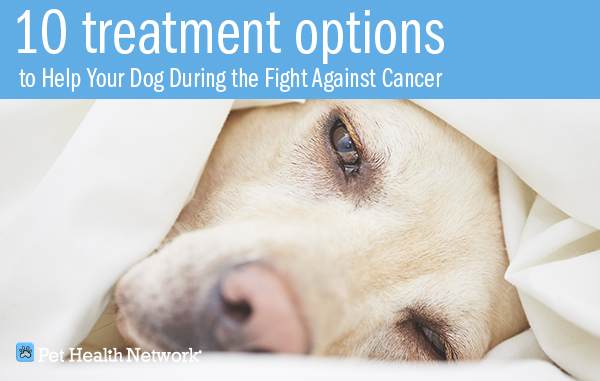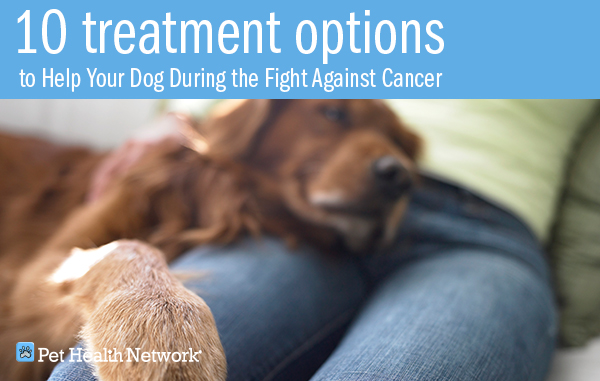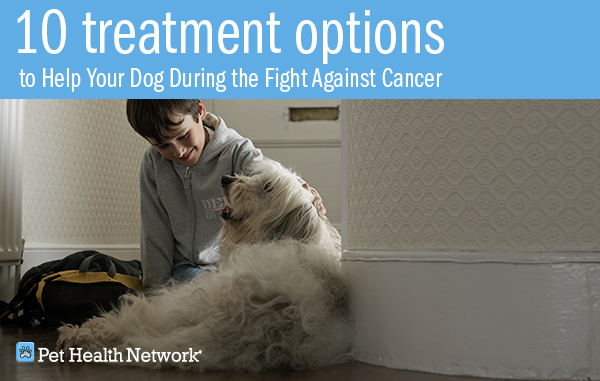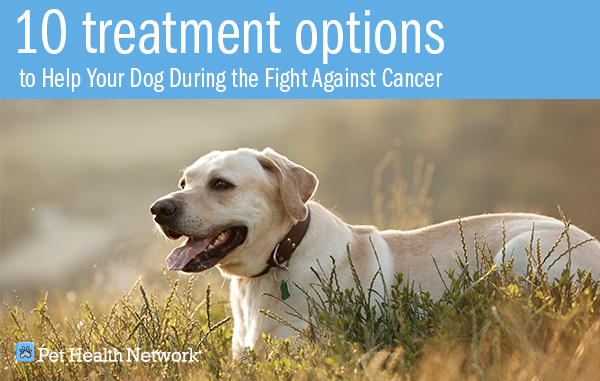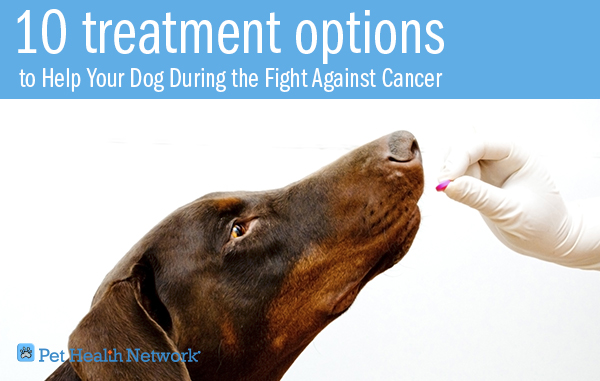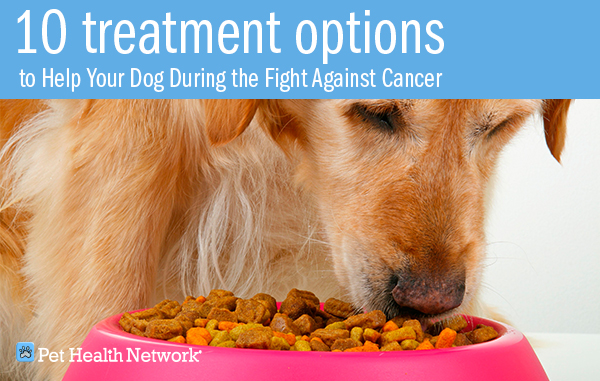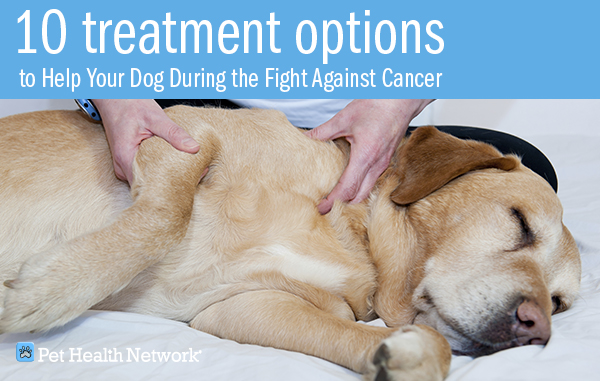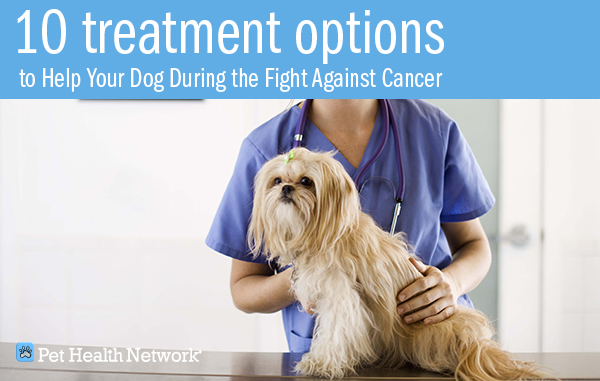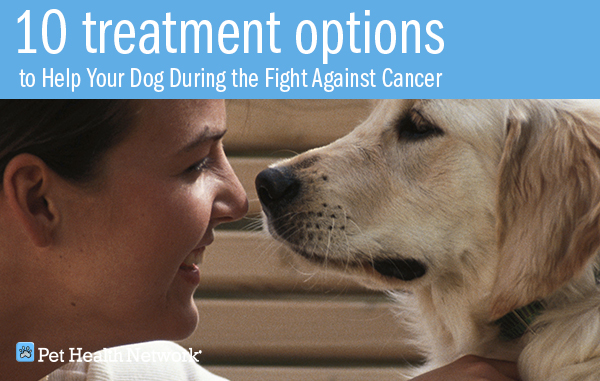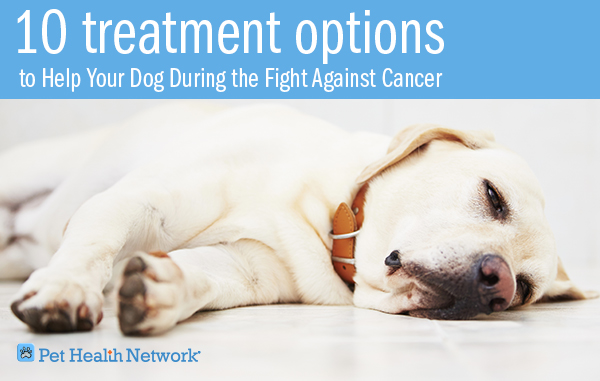AJ Debiasse, a technician in Stroudsburg, PA, contributed to this article.
Hearing your dog has cancer can be terrifying. One of the most common questions asked is, “How long does she have left to live?” Cancer does not automatically mean a death sentence. Some cancers are curable. In addition, not all cancers are created equal. Your dog's options directly depend on the type of cancer and how advanced it is. However, there is always hope. In fact, lots of hope. Here are 10 treatment options to help your dog during the fight against cancer.
1. Surgery
Surgical removal, complete or partial, is one of the most common options when dealing with a mass. Tumor removal can help stop the spreading of cancer or even provide a cure depending on the cancer type and location. Cancer doesn't always follow the rules, so it may be beneficial to enlist the help of a board-certified surgeon working together with an oncologist to perform the surgery.
2. Chemotherapy
Despite the perception we have about people receiving chemotherapy, dogs seem to have fewer side effects. There are two main types of chemotherapy: regular or high dose and low dose (a.k.a. metronomic therapy). High-dose chemo is given for a period of time. Low dose chemo is given over a longer period of time, if not indefinitely.
3. Radiation therapy
Radiation therapy is another option which works by damaging the DNA in cancer cells, causing them to die. This can be administered with no discomfort. Radiation can be used to provide a cure or be used as a palliative treatment, for example with bone cancer. This means that radiation will decrease the pain.
4. Cancer medications
Cancer-specific medications are available. Examples include a tablet to treat mast cell tumors, a drug (piroxicam) to treat transitional cell carcinoma in the bladder, antibodies to treat lymphoma or a vaccine for malignant melanoma. There are also countless medications to treat secondary symptoms that may occur from treating cancer, or from the cancer itself.
5. Pain medications
Some types of cancers are painful. Controlling cancer patients’ pain can improve their quality of life during and after treatment. Fortunately, there are now many pain medications to choose from.
6. Diet
Choosing the correct diet can slow down cancer growth. There is at least one commercial diet, which is low in carbs and high in protein; it is made to “starve” cancer cells. A board-certified veterinary nutritionist together with an oncologist can help you select the appropriate diet for your dog.
7. Alternative medicine
The use of alternative veterinary medicine has grown rapidly in recent years. Many veterinarians use it as part of a multimodal approach to fight cancer. Acupuncture, medicinal massage and Chinese herbs are just a few of the options available. Make sure to keep your veterinarian or oncologist (cancer specialist) aware of these treatments to make sure that there are no contraindications with medications.
8. Nursing care
Cancer patients may need specific procedures that you may not feel comfortable performing. Bringing your dog into the veterinary office daily can be even less appealing. Veterinarians and technicians are available in some locations to train you to perform treatments at home. Others will make home visits to help with treatment administration or other tasks. Examples include emptying your dog’s bladder, giving injections and changing dressings.
9. Hospice care
When the end is near, because treatments have become ineffective, the last ditch effort to help your dog is hospice care. The goal is to ensure your dog’s remaining time is as comfortable as possible.
10. Euthanasia
When quality of life becomes unacceptable, veterinarians have an option that is not legally available in humans: euthanasia.
Euthanasia is also an option when pain cannot be controlled anymore or when you have exhausted your finances. This decision, however difficult, could be the most thoughtful and loving one you will make in your dog’s lifetime.
As you can see, there are many options to help your dog deal with cancer. So if you learn your dog has cancer, the best thing you can do is discuss all available options for managing the disease. Questions to ask your vet when your dog is diagnosed with cancer:
- What are the options to help my dog?
- How can we improve quality of life?
- When will I know that it’s time to “let go?”
If you have any questions or concerns, you should always visit or call your veterinarian -- they are your best resource to ensure the health and well-being of your pets.
Related symptoms:
Reviewed by:
Reviewed on:
Friday, August 14, 2015

